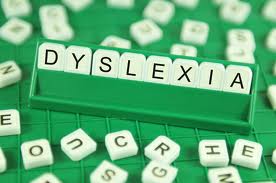Leave Learning Disabilities Behind and Become Fluent in a Foreign Language
Posted on May 12th, 2013by Melanie
In French, Pronunciation, Speech | Leave a Comment »
 Students with learning disabilities might be dismissed as being unable to learn foreign languages, but this is simply not the case. Many people with learning disabilities have trouble isolating the sounds of words and distinguishing between vowels. They may mispronounce words that have a similar sound. Learning a new language will emphasize these issues but it doesn´t mean that it will prohibit the learning of a second language. Studies have shown, in people suffering from dyslexia, that those with less phonemic awareness in their own language may find it harder to learn a foreign language whereas those with a better phonemic awareness will be able to converse in a foreign language more easily and may find the writing and grammar aspect harder. Or, conversely, the reading and writing component may not present any difficulties but it may be harder to speak it. By using a systematic approach to learning that involves a multisensory structure, students with learning disorders can overcome any inhibiting factors and have the ability to learn foreign languages. People with dyslexia can be particularly good conversationally, so more vocal orientated lessons in foreign languages are recommended.
Students with learning disabilities might be dismissed as being unable to learn foreign languages, but this is simply not the case. Many people with learning disabilities have trouble isolating the sounds of words and distinguishing between vowels. They may mispronounce words that have a similar sound. Learning a new language will emphasize these issues but it doesn´t mean that it will prohibit the learning of a second language. Studies have shown, in people suffering from dyslexia, that those with less phonemic awareness in their own language may find it harder to learn a foreign language whereas those with a better phonemic awareness will be able to converse in a foreign language more easily and may find the writing and grammar aspect harder. Or, conversely, the reading and writing component may not present any difficulties but it may be harder to speak it. By using a systematic approach to learning that involves a multisensory structure, students with learning disorders can overcome any inhibiting factors and have the ability to learn foreign languages. People with dyslexia can be particularly good conversationally, so more vocal orientated lessons in foreign languages are recommended.
As the need for a knowledge of foreign languages is on the rise, it´s no longer necessary for people with learning disorders to be made to miss out on these linguistic opportunities. As awareness of learning difficulties has increased and new teaching methods have evolved to cater for these needs, there´s nothing to stop students from learning the new language they desire. So, if you have a learning disability and have always felt that you´ve been held back by being told you can´t learn a new language, then think again! With courses that are specifically tailor-made to your needs, you can learn French in Leeds and show that you have what it takes to learn a foreign language.

